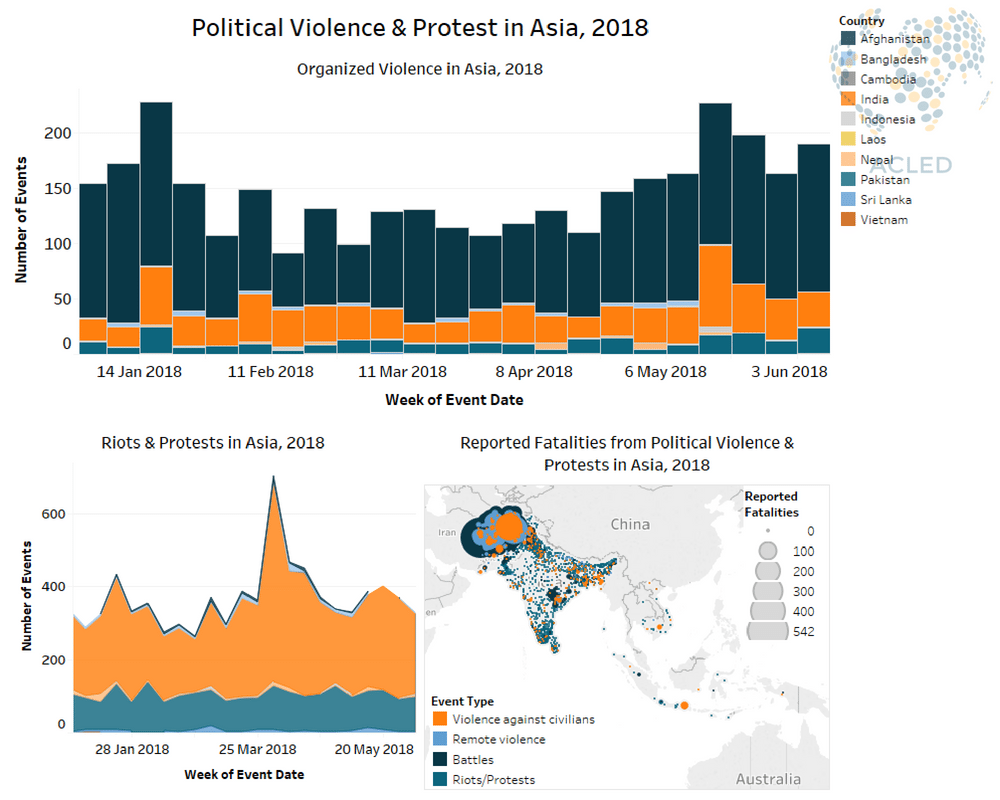Important developments in South and Southeast Asia this past week included ceasefire negotiations in Afghanistan, continued cross-border violence between Pakistan and India, and several protests throughout the region in solidarity with the people of Palestine.
In a surprising move from both sides, Afghan President Ashraf Ghani declared a unilateral ceasefire on June 7 over the Eid holiday period, which was accepted by the Taliban on June 9. This is the first time that the Taliban has accepted a temporary ceasefire offered by the government (Al Jazeera, 9 June 2018).
In the state of Jammu and Kashmir in India – despite a ceasefire agreement with Pakistan and a unilateral ceasefire with militants – Indian and Pakistani forces exchanged fire across the Working Boundary (WB) and Line of Control (LoC) while the number of militant attacks on state forces remained high.
In Pakistan, the number of political violence events – although still low – increased last week in Khyber Pakhtunkhwa province, following its merger with the Federally Administered Tribal Areas (FATA) on May 31. The total number of violent events in the ex-FATA territories have doubled from two to four, with reported fatalities related to armed violence in the area also rising at the same rate.
Protest levels remained static in South and Southeast Asia. In several countries – including India, Pakistan, and Indonesia – people took to the streets in solidarity with Palestinians for Al Quds Day on June 8 and to protest against Israel and the United States. In India, farmers staged nationwide protests demanding fair compensation for their goods; protests against insufficient water supply were reported from several places and demonstrations against high taxes and fuel prices continued. Protests over fuel prices were also reported from Nepal last week.
(Data on Philippines, Thailand and Myanmar have not yet been released; trends are hence not explored above.)







